Road Traffic Regulations, 2012 L.I. 2180 – Beware of it safe lives including yours & save cash
I have posted below some road traffic regulations under LI 2180 that may be of 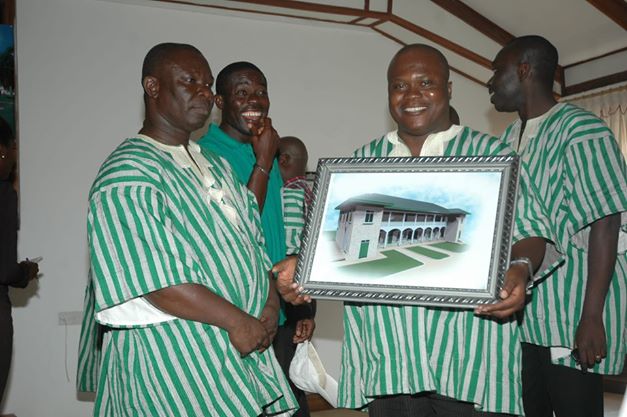 interest. It includes Regulation 107 which deals with talking on a mobile phone.
interest. It includes Regulation 107 which deals with talking on a mobile phone.
ROAD TRAFFIC REGULATIONS, 2012 L.I. 2180
Production of driver’s licence
- (1) A person driving a motor vehicle shall, while driving the motor vehicle, carry that person’s original driver’s licence.
(2) A person driving or in charge of a motor vehicle on a road shall, on the request by a police officer in uniform or an authorised officer of the Licensing Authority, produce the driver’s licence that authorises that person to drive the motor vehicle for inspection.
(3) Despite subregulation (2), a police officer in uniform may request a person to produce, within twenty-four hours, the driver’s licence of that person to that officer, at a designated police station or to another police officer as may be directed by the officer.
(4) Where a person driving a motor vehicle is required to produce a licence a certificate or a document relevant to driving the motor vehicle, that person shall produce it immediately or within twenty-four hours of being required to produce the licence, certificate or document.
(5) A police officer in uniform and not below the rank of an Inspector, may where 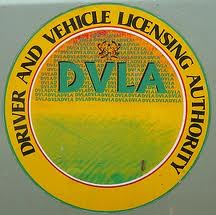 necessary, retain the driver’s licence for the period that that licence is required, and shall issue an official receipt for the retention.
necessary, retain the driver’s licence for the period that that licence is required, and shall issue an official receipt for the retention.
- (1) A person shall not drive a motor vehicle unless that motor vehicle has a windscreen, a window or partition made of a transparent material that
(a) affords the person driving sufficient visibility for safe driving
of the motor vehicle;
(b) in the case of a windscreen, other than a windscreen fitted to a motor cycle or motor tricycle, is made of glass; and
(e) is made of safety glass and is permanently marked with the name or trade mark of the manufacturer.
(2) Despite the provisions of subregulation I(b) and I (e), the transparent material
(a) for a window
(i) in the roof of a motor vehicle, or
(ii) partition of a bus or a mini-bus, or partition of a semi-trailer designed or adapted for the conveyance of passengers, may consist of ultra-high impact acrylic or polycarbonated
plastic material with each pane permanently marked with the name or trademark of the manufacturer or the trade name of the material that clearly identifies the material as ultra-high impact acrylic or polycarbonated plastic material; or
(b) for a window or partition or a removable or collapsible hood or canopy of a motor vehicle, may consist of flexible plastic material.
(3) A person shall not drive a motor vehicle with a tinted front windscreen.
(4) A person may drive a motor vehicle which has glass other than the windscreen and front glass tinted with light transmittance of at least seventy per cent to allow the occupants to see and be seen, if
(a) the film or tinting material applied to the windscreen or window or partition is free from bubbles or tears or scratches;
or
(b) the film or material applied to the windscreen or window has a textured surface or is a fixture or an attachment but does not reduce the visibility of the person driving the motor
vehicle in any direction.
(5) Subregulation (3) does not apply to an ambulance, a hearse or a motor vehicle authorised by the Licensing Authority.
(6) A person who contravenes this regulation commits an offence and is liable on summary conviction to a fine of not less than twenty five and not more than fifty penalty units or to a term of imprisonment of not less than thirty days and not more than three months or to both.
Prohibition on use of communication device while driving
- (1) A person shall not drive a motor vehicle on a road or in a public place while
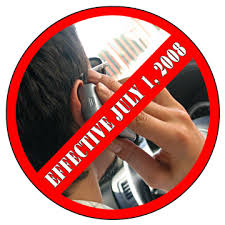 holding, usirrg or operating a cellular or mobile telephone or any other communication device in one or both hands.
holding, usirrg or operating a cellular or mobile telephone or any other communication device in one or both hands.
(2) A person shall not supervise the holder of a Learner’s Licence whilst the person who is driving the vehicle is using
(a) a hand-held mobile telephone; or
(b) a hand-held device of a kind specified in subregulation (5).
(3) A communication device referred to in subregulation (1) and (2) is a device, other than a two-way radio, which performs an interactive communication function by transmitting and receiving information.
(4) Despite subregulations (1) and (2) a person may, whilst that person is driving or supervising the holder of a Learner’s Licence who is driving a motor vehicle, use a telephone or other device to call the police, fire ambulance or other emergency service, if it is unsafe or impracticable for the person to cease driving in order to make the call.
(5) For the purposes of this regulation,
(a) a mobile telephone or other communication device is hand- held, if it is or has to be held at some point during the course of making or receiving a call or performing any other interactive communication function;
(b) interactive communication function includes:
(i) sending or receiving oral or written messages;
(ii) sending or receiving facsimile documents;
(iii) sending or receiving still or moving images; and
(iv) providing access to the internet; and
(c) two-way radio means a wireless telegraphy apparatus which is designed or adapted for the purpose of transmitting and receiving spoken messages.
(6) Subregulation (1) does not apply to the following persons while those persons are driving in execution of their duties and the use of the mobile phone or other communication device is required in the execution of the duty:
(a) a person driving a fire-fighting vehicle;
(b) a person driving a rescue vehicle or an ambulance;
(c) a traffic officer; .
(d) a police officer;
(e) an officer of the Armed Forces; or
(f) an officer of any other recognised Government Security
Agency or an emergency service provider.
(7) A person who contravenes this regulation commits an offence and is liable on summary conviction to a fine of not more than fifty penalty units or to a term of imprisonment of not more than three months or to both.
Turning right on red
- A person driving a motor vehicle may turn right on a red signal at a traffic light junction unless it interferes with traffic from a green signal or a pedestrian crossing.
- (1) A person shall not drive a motor vehicle unless the motor vehicle is fitted with a seat belt.
(2) A person shall not drive a motor vehicle on a road or sit in the front or rear seat of a motor vehicle being driven on a road withoutwearing a seatbelt.
(3) A person shall not drive a motor vehicle on a road, where a child between the ages of five and eighteen years who is seated on the front seat of the motor vehicle is not wearing a seatbelt.
(4) A person shall not drive a motor vehicle on a road where a child in the rear seat of the motor vehicle is not wearing a seatbelt.
(5) A person shall not drive a motor vehicle on. a road where a child of five years or below is in the front seat of the motor vehicle.unless that person has provided·’;
(a) a restraining or safety device or a carry cot for the child; or
(b) an equipment designed for use by a child in conjunction with other restraining device.
which is not prescribed under these Regulations in a motor vehicle that person commits anoffence and is liable on summary conviction to a fine of not more than fifty penalty units or a term of imprisonment of not more than three months or to both.
(4) A person shall not drive a motor vehicle which is not fitted with a seatbelt on a road, two years after the commencement of these Regulations.
Commercial vehicles
(6) A person shall not drive a motor vehicle on a road unless a seatbelt is fitted to the space on the front seat occupied by the person driving, and for the passenger where there is a front seat which has seating accommodation for passengers.
(7) A seatbelt fitted to a motor vehicle
(a) shall be in good working condition as specified by the Licensing Authoriry, and
(b) only be removed for the purpose of repair and replacement.
(8) A person shall not use a motor vehicle on a road if the seatbelt of that motor vehicle is being repaired or replaced.
(9) A seatbelt or child restraining device fitted in a motor vehicle
shall
(a) be in a form that meets the standard specifications as prescribed by the Licensing Authority in collaboration with National Road Safety Commission and Standards Authority,
and
(b) bear a certification or approval mark of the manufacturer.
(10) The Licensing Authority may exempt a person from the provisions of this regulation on medical grounds and under conditions that the Licensing Authority may determine.
(11) A person who contravenes this regulation commits an offence and is liable on summary conviction to a fine of not less than ten penalty units and not more than fifty penalty units or to a term of imprisonment of not more than three months or to both.
Spot fine
- (1) A person who commits a road traffic offence specified in the Seventh Schedule is liable to pay a spot fine.
(2) Despite subregulation (1), the Minister may by publication in the Gazette provide that a road traffic offence attracts or ceases to attract a spot fine.
(3) Where a person commits a road traffic offence which attracts a spot fine, a police officer in whose presence the offence was committed shall
(a) issue that person with a spot fine notice; and
(b) record the offence in the counterpart driver’s licence of that person.
(4) Where a police officer in uniform believes an offence which attracts a spot fine has been committed by a person and the vehicle of that person is stationary and unattended, the police officer shall affix a
spot fine notice to the windshield of the motor vehicle.
(5) A person issued with a spot fine notice under subregulation (3) or (4) shall report to the Spot Fine Office with the spot fine notice within twenty-four hours. .
(6) Where the person admits the offence, the officer in charge of the Spot- Fine Office may
(a) issue that person with a caution notice in the case of a first time offence; or
(b) direct that that person pays the fine specified in the spot fine
notice in lieu of court proceedings(7) Where the person denies committing the offence, the officer
in charge of the Spot Fine Office shall recommend the prosecution of that person by the Police.
(8) Where a person pays the fine stated in the spot fine notice
that person shall not be prosecuted for the same offence.
(9) Where a person fails to pay the fine imposed within the period specified in thespot fine notice, the Licensing Authority may refuse to renew the driver’s licence.
(10) Where an offence specified in this regulation is committed as a result of a defect on the vehicle, a police officer in uniform shall issue that person with a conditional vehicle rectification notice.
(II) Where the conditional vehicle rectification notice issued under subregulation (10) is in respect of
(a) a minor defect on the motor vehicle, the person in charge of the motor vehicle shall rectify the defect within the period specified in the conditional vehicle rectification notice;
(b) a major defect on the motor vehicle, the person in charge of the motor vehicle shall rectify the defect within the period specified in the conditional vehicle rectification notice and
in addition pay the fine imposed; or
(c) a commercial vehicle, the person in charge of the commercial vehicle shall not use the commercial vehicle unless that person has ratified the defect specified in the conditional vehicle rectification notice.
(13) Despite subregulation (3) and (4), a Police Officer may, having regard to the seriousness of the act constituting the offence process the person for court without the option of paying a spot fine.
(14) A person who contravenes or fails to comply with a provision of this regulation commits an offence.
(15) Without limiting the effect of subregulation (1) and (2), a person who contravenes or fails to comply with a provision in the Seventh Schedule commits an offence and is liable,
(a) for a first offence and two subsequent offences, to a fine of not more than five penalty units for each offence;
(b) for a fourth offence to a fine of ten penalty units;
(c) for a fifth offence to a fine of fifteen penalty units;
(d) on summary conviction by a court for a sixth offence,
(i) to an order from the court for the revocation, suspension or cancellation of the person’s driving
licence by the Licensing Authority for not less than twelve months,
(ii) re-training at the designated training centre, and
(iii) re-testing by the Licensing Authority before the issuance of a new driver’s licence.
(16) Where a person is summarily convicted by a court for failure to pay a spot fine, that person is liable to a fine not less than twenty-five penalty units and not more than fifty penalty units or a term of imprisonment of not more than three months or to both.
General speed limits
- Except otherwise indicated by the Road Authority, a person driving a motor vehicle shall not exceed a maximum permissible speed limit of
(a) thirty kilometres per hour on a road
(i) within a school, a playground, or a health facility,
(ii) a church, a mosque, a market, a shopping center, or
(iii) a procession or where human activity is predominant;
(b) fifty kilometres per hour on a road or a section of a road situated within an urban or built up area;
(c) ninety kilometres per hour on a road or section of a road, other than a motorway, situated outside an urban or built up area; or
(d) one hundred kilo metres per hour on a motorway.
Use of television monitor on the dash board of a motor vehicle
- (1) A person shall not use or operate a television monitor or a similar device on the dash board of a motor vehicle while the motor vehicle is in motion.
(2) A person who contravenes subregulation (1) commits an offence and is liable on summary conviction to a fine of not more than twenty-five penalty units or to a term of imprisonment of not more than thirty days or to both.
Thanks and best regards.
Opoku Agyei Esq.
This post has already been read 26377 times!
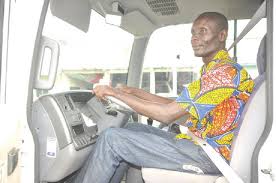


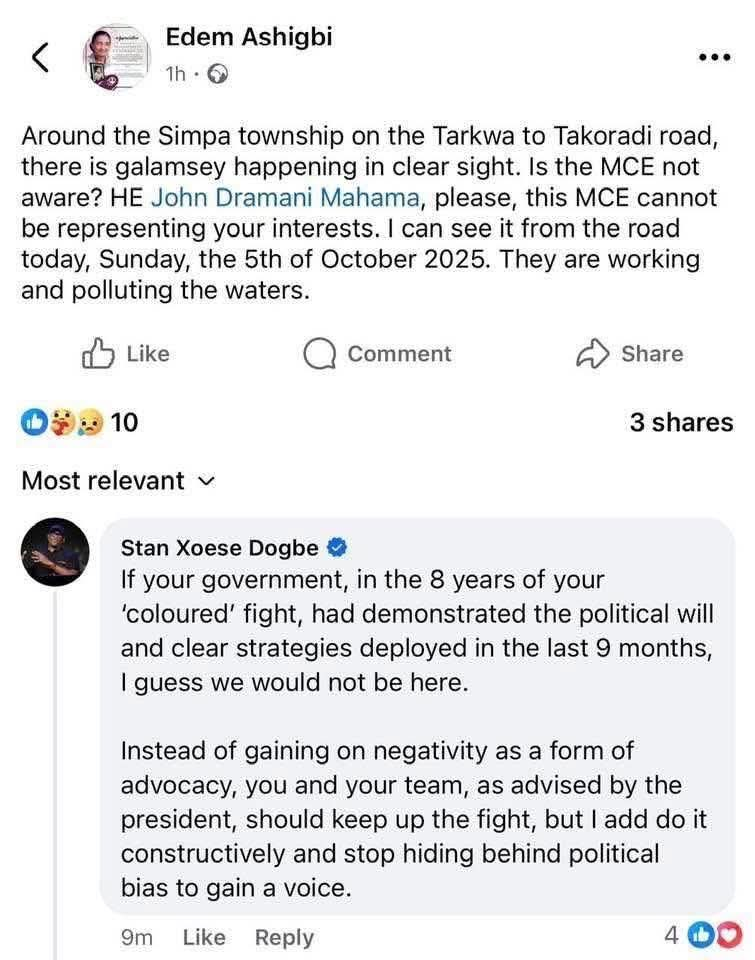








24 comments